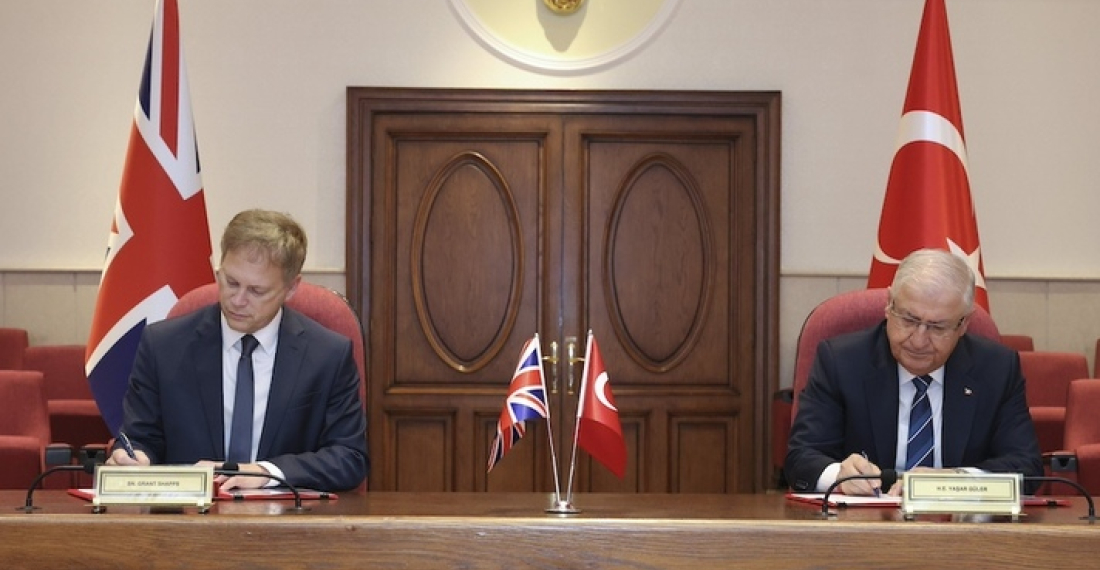The UK and Türkiye, on Friday (25 November) agreed to work more closely together to help bring greater stability, security and prosperity to both nations.
UK Defence Secretary, Grant Shapps, signed a Statement of Intent on defence co-operation, with his Turkish counterpart, Minister of National Defense, Yaşar Güler. This will provide the framework for closer working to deliver additional activities that will benefit the security and prosperity of both countries and, in so doing, enhancing national, regional and international security.
Following the signing, activity will see closer collaboration between both countries’ defence industries, the identification of possible joint training exercises in the Mediterranean, and the exploration of security support around North Africa and the Middle East.
As well as discussing the need for de-escalation in the Middle East, the British Defence Secretary thanked his counterpart for utilising Türkiye’s influence as the gatekeeper to the Black Sea to enable the export of millions of tons of Ukrainian grain to nations who need it most.
There was strong agreement on the need to keep focused on our collective support for Ukraine in the face of Russia’s continuing aggression.
British Defence Secretary Shapps said after the signing
“I was very pleased to meet my counterpart, Minister Güler, and to jointly agree to deepen the UK-Turkish defence relationship. Türkiye stands at the crossroads of three continents and, at a time of such global instability, their influence cannot be underestimated.The agreement we’ve signed will see our relationship go from strength-to-strength and enhance our nations’ defence and security co-operation.”
In his first face-to-face meeting with his Turkish opposite number, Shapps welcomed the progress made on Sweden’s accession to NATO and hoped to see Turkish ratification through parliament as soon as possible.
The signing of the agreement and bilateral meeting came following increased co-operation between the UK and Türkiye on defence matters over the preceding years.
The strategic alignment, during Shapps’ official visit to Ankara, has stirred discussions about the prospective emergence of a new European defense axis and its potential to address Turkiye’s impending fighter aircraft deficiency.
Analysts say that this closer partnership with the UK could amplify Turkiye’s bargaining power and strategic influence in the pursuit of acquiring new American F-16s. The timing of this accord is also significant. Turkish Defense Minister Guler recently said that despite Germany’s opposition, Ankara was in talks with the UK and Spain to purchase 40 Eurofighter Typhoon jets.
Given the prolonged delays and uncertainties in securing new F-16 jets from Washington, the prospect of expediting the acquisition of Eurofighters via the UK deal is still not guaranteed because the export decision needs consent from all four partners in the Eurofighter consortium — the UK, Germany, Italy and Spain.
Analysts speculate that Turkiye could leverage its strengthened diplomatic ties with the UK to persuade Germany not to obstruct the deal.






